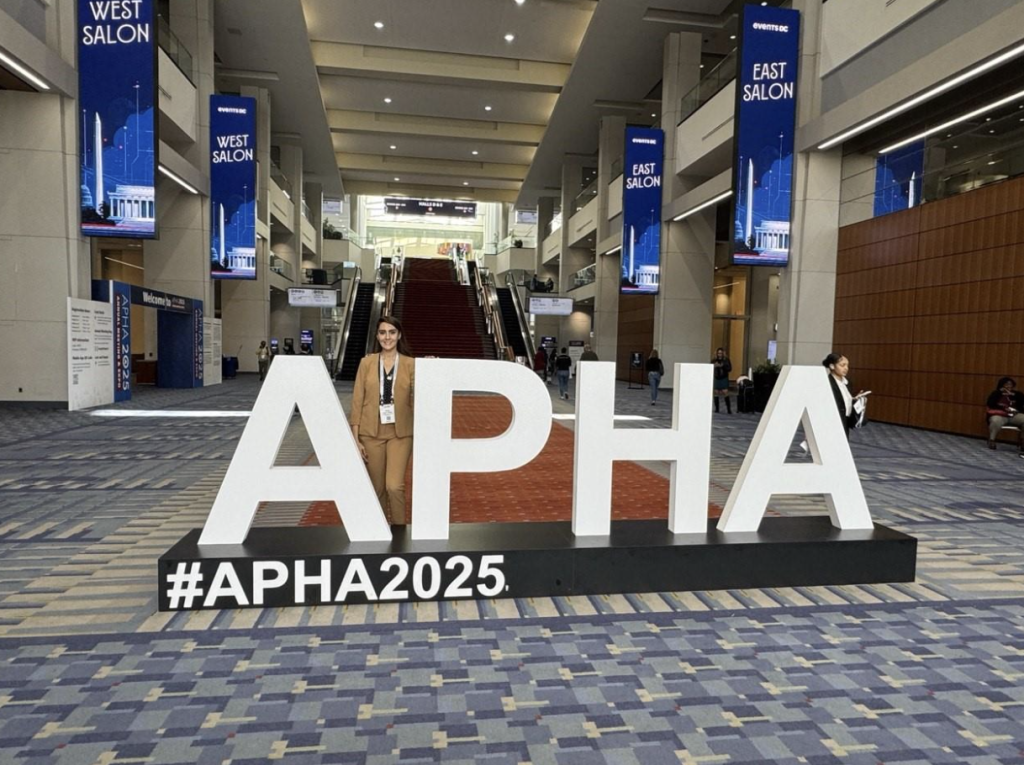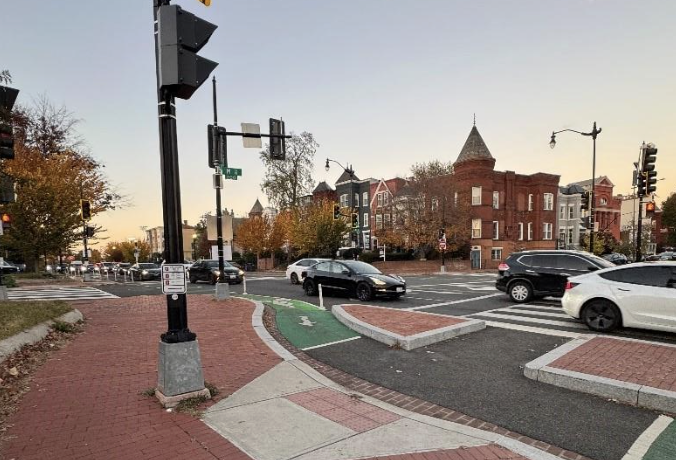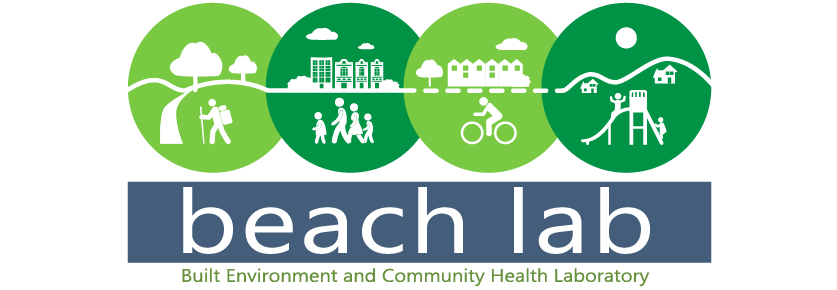In early November, Farnaz had the opportunity to attend the 2025 American Public Health Association (APHA) Annual Meeting in Washington, DC, one of the largest and most influential gatherings in the field of public health. This year’s theme emphasized making Public Health a National Priority. Attending APHA was an enriching experience for Farnaz, where she both presented her research and learned from leaders across disciplines.
While presenting her poster presentation, Farnaz had valuable conversations with researchers, practitioners, and students interested in environmental health, GIS-based methodologies, social determinants of health, and built-environment equity. Many attendees were particularly interested in her approach to measuring walkability and its moderating effect on mental health outcomes.

Throughout the conference, she attended a range of sessions across environmental health, nature-based solutions, mental health, aging, and physical activity. A few highlights include:
Environmental Health & Environmental Justice
Environmental Health Disparities (EHD) Centers Research Program: Discussions emphasized multidisciplinary collaborations and structural drivers of environmental inequities.
Empowering Promotor for Environmental Health Awareness: This session highlighted culturally grounded strategies to increase community knowledge about environmental risks in agricultural regions.
Nature, Climate, and Well-Being
Leveraging the Power of Nature to Promote Human Well-Being: This session showcased emerging research on nature-based solutions, green infrastructure, and the psychological and physiological benefits of nature exposure, directly aligning with BEACH Lab’s work on built environments and health.
Mental Health & Social Determinants
Strategies to Improve Social Isolation Among Older Adults: A range of innovative community-based programs were presented to strengthen social ties among older populations.
Social Determinants of Mental Health Roundtable: Provided perspectives on psychosocial barriers and facilitators to mental well-being across diverse communities, highly relevant to her dissertation focus on neighborhood context.
Beyond the scientific sessions, APHA provided excellent opportunities to connect with researchers and nonprofit organizations. The Expo Hall was also a highlight. She explored new tools, poster presentations, community health innovations, and academic programs relevant to environmental health and spatial epidemiology there.
Besides, she loved beautiful walkable Washington, D.C. Also, at the Arnold School of Public Health Social Event, she played darts and proudly placed 3rd out of many participants there.



